
Selling books at events is one of the most underutilized strategies used by authors.
We get it…
You don’t want to come off all salesly and pushy to a potential new reader.
But if it’s done in the right way, these events can be an extremely powerful method to sell more books and get your name out there.
That’s why we’ve teamed up with Leslie Gulvas, an established author with both traditional and self-published books, such as Carnival Charlatan and Off the Reservation to create this post on selling at author events.
Leslie’s has had a ton of success selling her books at events and is sharing her knowledge with our audience.
So without further ado, let’s jump into our guide to selling books at events and writer conferences.
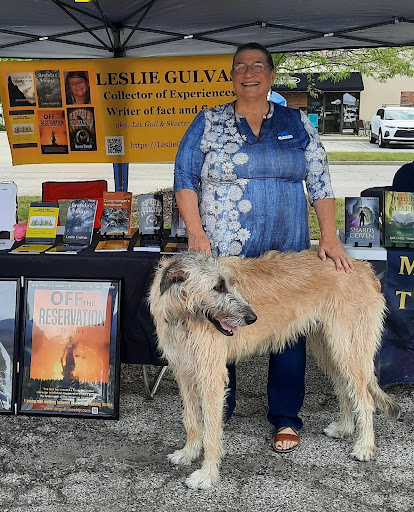
Table of Contents

Key Takeaways
- Event Booth: Show a well-organized author booth, complete with labeled elements such as book displays, banners, business cards, lighting, and swag items.
- Types of Events for Authors: A visual guide categorizing different events like book fairs, conventions, comic cons, and trade expos, with icons.
- Engaging with Readers: A graphic featuring a friendly author interacting with potential readers, giving out bookmarks, or other swag
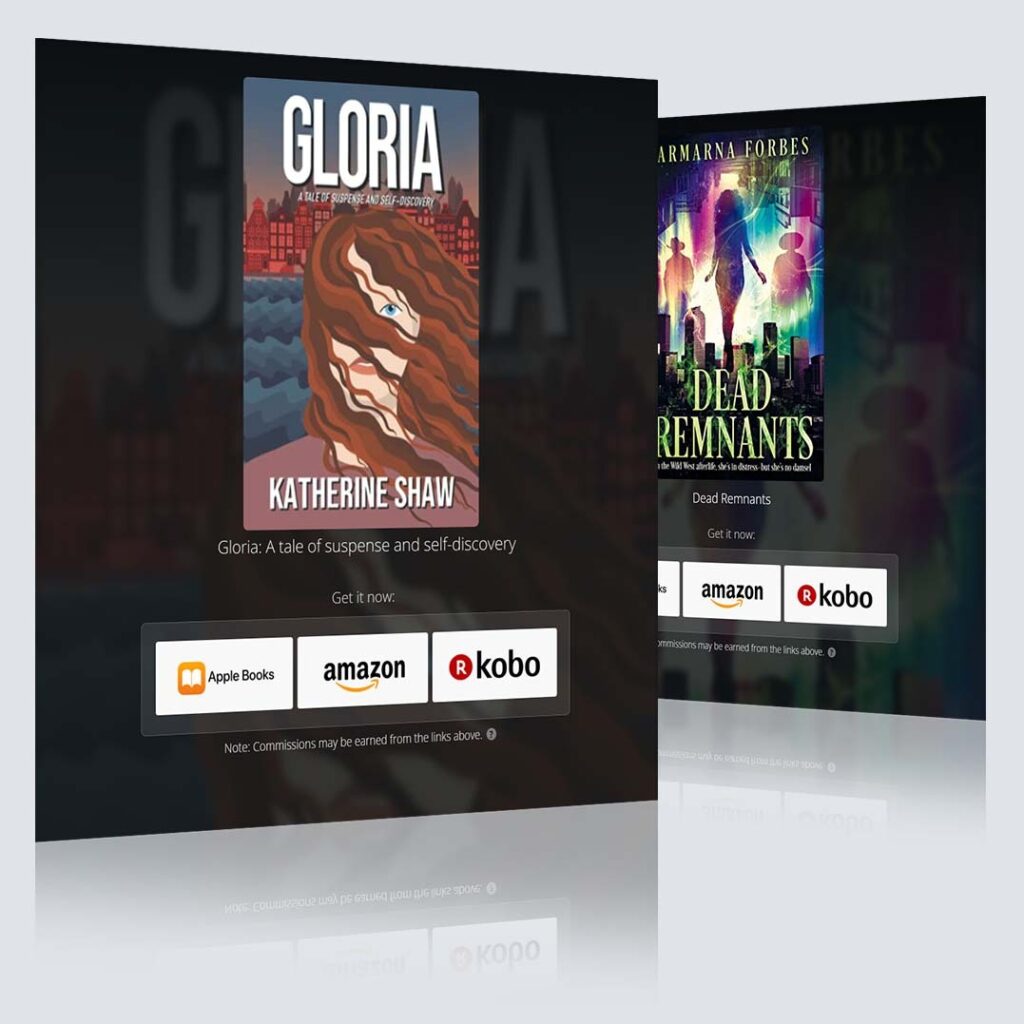
Free Universal Book Links
- Boost international sales by geotargeting readers
- Book store links update automatically based on availability
- Advanced marketing analytics
- Increase clicks with trusted links
The Research Phase
Before you attend any events, you’re going to want to do some research.
Find your people
As with any marketing, your audience is a big part of the equation. If you are writing about Occult Devil worshiping zombies in search of brains, you probably don’t want to set up at the church book fair.
If your target audience is middle-aged women who enjoy crafting, what type of events do you imagine these women would attend? Get in the mindset of your ideal reader and then figure out the type of events they will most likely attend.
Types of Events
There are events of all different sizes and themes that take place in your community and around the country.
Sure there are book fairs, but think beyond the average book fair to other events your reader may attend. With book fairs you are competing with lots of other authors. If instead you attend a fitness expo with your diet and exercise book, you may be the only author there.
Selling books at an event can take a lot of work, so make sure you are doing everything you can to find events that are a good fit for your books.
- If you write science fiction or fantasy, ComicCons would be a good choice.
- If you write about gardening, think about Home & Garden shows or even Farmer’s Markets.
- If you write hockey romance, maybe you can sell your books at a hockey tournament.
- If you write nonfiction, find events related to the topic you write about.
You get the idea.
You can also ask other author buddies in your genre about events and conferences they’ve attended. December and January are good times to start planning out the events you’d want to go to for the year.
Think about all the events in your area or places you are willing to travel that fit the types of books you write and create a dream list that includes all of them.
ROI (Return on Investment)
If your goal is to make a profit at an event, calculate your return on investment. How many books are you going to have to sell to cover your costs?
- Booth space
- Food at event
- Swag you’re giving away
- Cost to print your books
- Travel costs
Example for a local one-day event with an estimated 200 people attending.
- Booth space: $100
- Food at event: $30
- Swag you’re giving away: $70
- Cost to print your books: $175 (35 books at $5.00 each)
- Travel costs: $50 (gas money)
- Credit card fees: $8.75 2.5% on 35 books
With this example, the costs are $483.75. If the books are being sold at $15 each, 32 books will need to be sold to break even. To make a profit, one must sell over 33 books.
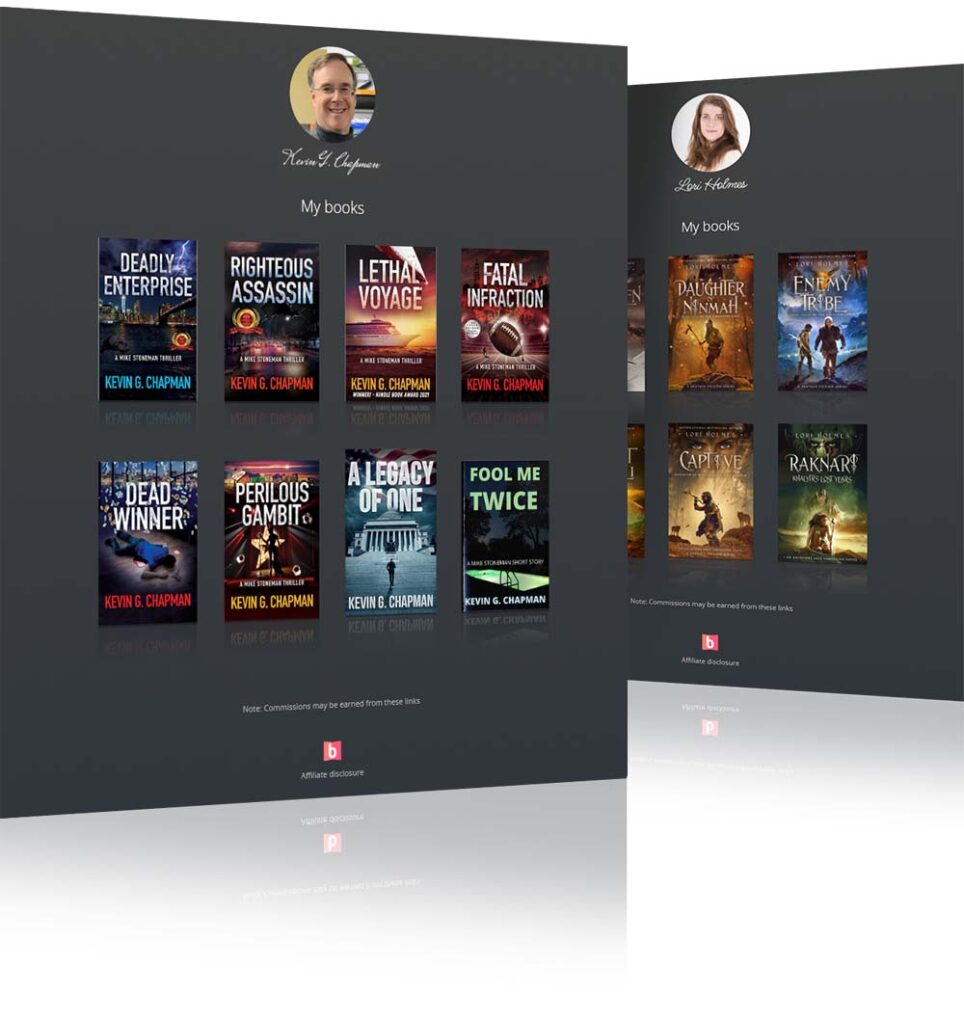
Introducing: Booklinker Collections
One landing page for all your books. 100% free.
One link for easy sharing of your books across your backmatter, websites, emails, and social media.
Types of Events Authors Should Sell At
Book Fairs
Book fairs occur at places like bookstores, churches, libraries, and schools. Even better, they are often free! Don’t pass them up if your genre of book might be a good fit for the expected audience.
In Leslie’s experience, memoirs and Amish Romance have done especially well at church sales.
Leslie often goes to the main library in Findlay, Ohio which has an author fair every year where local authors set up and sell their books. You might encourage your local library to invite local authors in the same way.
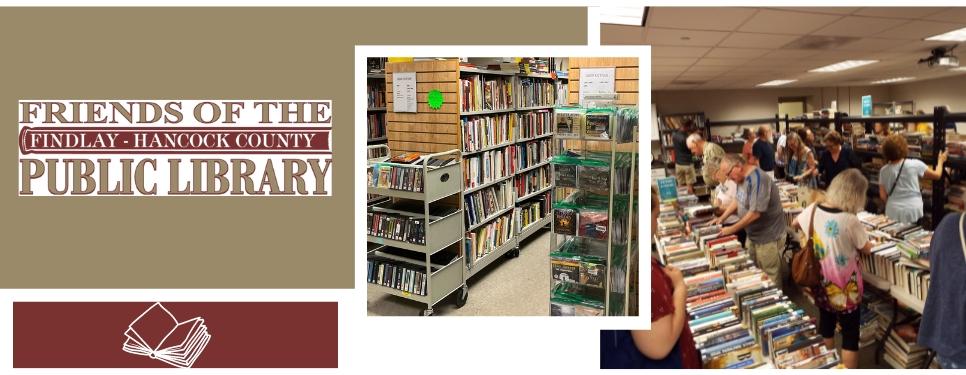
Some unique venues like coffee shops, bookstores, or even breweries, often sponsor book events where authors can sell their wares.
For example, the Scarelastic Book Fair celebrating horror books, is hosted by the Scarlet Lane Brewing Company in Indiana each year.
Conventions
Conventions are another great place for authors to sell their books in person. Conventions focus on a specific topic and usually have presentations and vendor booths. Find conventions that target your ideal audience (not writing conventions in a certain genre).
The fancons.com website is a resource to look for conventions that might have your readers. Police conventions and airshows would be great places to sell military fiction or mysteries. Home and Penguicon held near Detroit is a great example of a convention where you can sell sci-fi and fantasy books.
Comic Cons
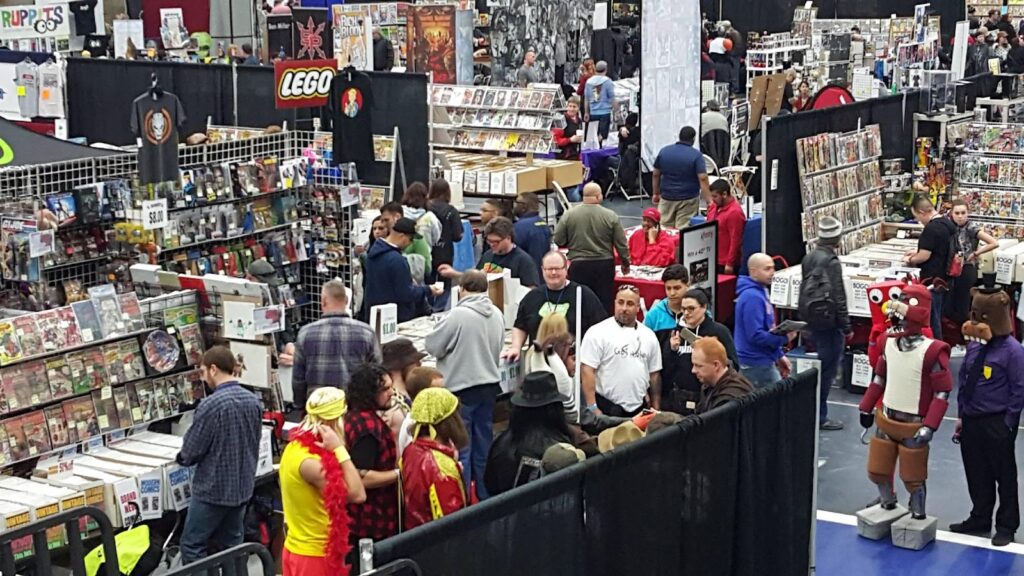
Comic Cons are specific conventions targeting people who enjoy science fiction, fantasy, gaming, graphic novels and cosplay. If you write in these genres, these are excellent events to consider attending and selling your books.
You can find comic cons in every state, like the Great Lakes Comic Convention in Warren, Michigan or the Fan Expo in Denver, Colorado
Craft Fairs
Around the holidays craft fairs can be good venues because there are a lot of people looking to buy gifts for the holidays.
They vary in size and cost of booth space. Find the ones that are within your budget and a good fit for your ideal reader. Like the Makers Mart in Toledo, Ohio in May.
In the summer, county Fairs can be a good option as well and often have a vendor tent where you can rent a space. An example is the Pemberville free fair in Pemberville, Ohio.
Trade Fairs
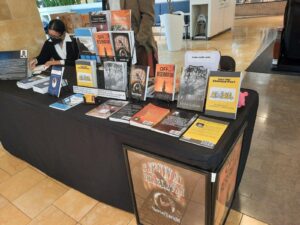
Trade Expos center around a certain topic like Sports Trading Cards, Fishing, Construction, Coin Collecting and the list goes on.
There are a lot of specialty fairs where you might find readers.
Expos make a perfect place for authors to sell nonfiction books where the topic coincides with the event
Flea Markers
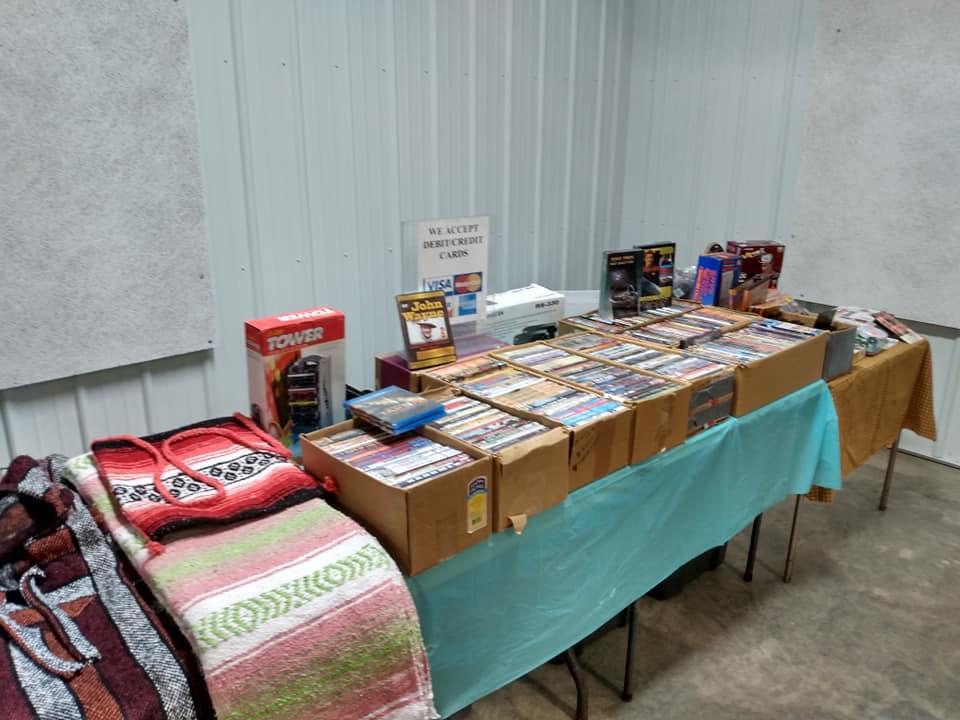
Flea Markets are not generally a good venue for new books as people are looking for bargains.
But if you have used books or old copies of some of your books that you want to get off your bookshelves to make way for the updated copies, Flea markets just might work.
Meigs County Trade Days in southern, Ohio is an example of a prosperous Flea Market that has a lot of people looking for bargains.
Presentation At Events
Now that we have an idea of what events will work for your books, let’s talk about how to present yourself at them.
Understand the audience attending. If it is a business expo, you will want a professional look.
If you are at a ComicCon, a costume works great. Dress accordingly for the type of event it is.
Regardless of the type of event, have a durable professional name tag made.
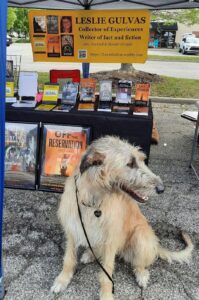
There are inexpensive ones you can get made that have magnets on them so you don’t have to worry about clipping or pinning them on.
A name tag shows you are a serious author and that you value your work.
Table Set Up
Set up your table so it stands out without being obnoxious. Make it classy and attention-getting.
Here are a few other tips Leslie has to share:
- Have a solid color table cover so as to not detract from your book covers
- A poster or banner with your name and book covers. Consider adding a QR code that directs people to your website You don’t have to make yourself broke on banners or posters- look for sales on printer websites or check with local printers. Business cards and or bookmarks with links to your web pages, again use QR codes.
- Your book covers are going to help sell your book. Instead of laying the books on the table, put one of each book on a stand so passers-by can see the covers.
- A sign that says you take credit cards. It is easy to set up credit card accounts through PayPal or Square. Expect that at least half of yoru sales will be credit card. Add a nice crate or something to raise part of your display and get your books closer to eye level.
- Add lights to your display. LED lights work great if you have access to electricity. If not there are battery operated lights.
- Bring free swag for event attendees.
- For nonfiction, craft, or art books, have samples of what is made. Memoirs need nicely framed pictures – war stories can use models.
- Have a hook. This can be a bowl of candy, a prop related to the story, or something to draw the eye- like a vase with peacock feathers or flowers (if you have room). Leslie brings her well-behaved wolfhound when she can.
Engaging with People
Ok, so we know which event we’re going to, and how to set up our table.
Now we need to get people engaged in a conversation. People like to buy products from people they have a connection to and trust.
You need to be a situational extrovert for the duration of the book sale.
Whatever you do, DO NOT sit and look at your phone!
Find a way to put yourself out there. Practice a few opening phrases. But don’t be robotic.
It’s important to only ask questions if they come from genuine curiosity or passion.
Here are a few lines or moves Leslie likes to use:
- Just smile and say “Hey, how are you doing?”
- “What do you like to read?”
- “Hi, have you ever wondered *** insert something related to your story or skill
- Comment on someone’s cool shirt
- Get babies to smile then talk to parents.
- Ask what authors they read or if they’ve read a story you know is comparable to yours.
Another idea is to have a giveaway so you can collect email addresses. Think of something besides your books (since you want to sell those) to give as a prize to one or a couple winners. To sign up, have them give their name and email.
Then to get people engaged, you can ask, “Do you want to win ***?”
Once you’ve got a potential reader engaged, give your story’s elevator pitch.
Here’s Leslies:
“My story Carnival Charlatan is about a witch hiding in plain sight in a carnival because in a world where everything is fake, of course, magic can’t be real.”
Once you have their attention, hand them your book and say, “You might want to check this out.” If it is in their hands they are most likely to buy it.
If they mention a genre that you don’t have, refer them to books in that genre. Be generous with the authors selling around you.
Put a bookmark with your information or a business card in every book sold.

Introducing:
Booklinker Collections
One landing page for all your books. 100% free.
One link for easy sharing of your books across your backmatter, websites, emails, and social media.
Conclusion
That’s all of the tips Leslie has for selling at author events for now.
Overall, it can be a great strategy to reach new reader bases you wouldn’t have otherwise reached from your online book marketing efforts.
Do you have any questions for Leslie or the Booklinker team?
Drop a comment and we’ll answer back!
FAQ #1: How do I find the right events to sell my books?
Start by researching events that align with your book’s genre and target audience. Look for book fairs, conventions, Comic Cons, craft fairs, and trade expos. Additionally, ask fellow authors for recommendations and use resources like fancons.com to find suitable events.
FAQ 2: What should I bring to an author event?
Essential items include a table cover, banners or posters with your book covers and QR codes, business cards, book stands, credit card processing equipment, and engaging props or decorations. Also, bring free swag like bookmarks or samples related to your book’s theme to attract visitors.
FAQ 3: How can I effectively engage with potential readers at events?
Be approachable and friendly, make eye contact, and start conversations with simple greetings or questions about their reading preferences. Have an elevator pitch ready for your book, offer giveaways to collect email addresses, and ensure your table setup is visually appealing to draw people in.
Author
-
Leslie Gulvas is a collector of experiences, a retired science teacher, and a former research scientist. Under her own name, she has multiple published creative nonfiction articles, fictional stories in anthologies, a middle-grade ghost story, and a children’s picture book. Under the pseudonyms Lee Gull and Skeeter Enright, she writes Native American thrillers and urban fantasy. When not traveling, she lives on a little farm with an insane horse, a giant wolfhound, and a disgruntled guard pig.
https://www.amazon.com/stores/Leslie-Gulvas/author/B09DFH77QG




2 Responses
Thanks for the article we are working our first event in a couple of weeks.
Amazing article!